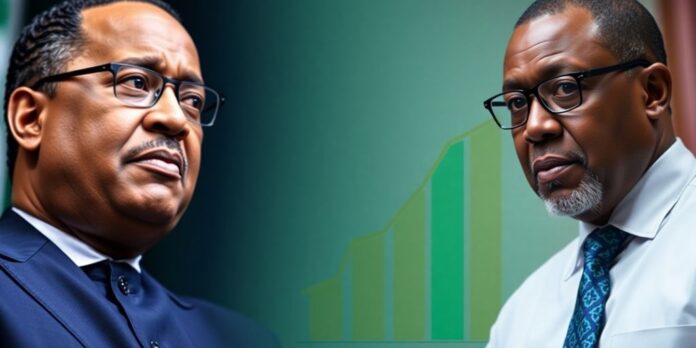The political landscape in Nigeria is witnessing a significant shift as former presidential candidates Atiku Abubakar and Peter Obi struggle to maintain control over their respective parties, the Peoples Democratic Party (PDP) and the Labour Party (LP). Following their defeat in the 2023 elections, both leaders are now facing mounting pressure to revitalize their parties amid a wave of defections to the ruling All Progressives Congress (APC).
Key Takeaways
- Atiku Abubakar and Peter Obi are losing influence within their parties.
- A significant number of lawmakers have defected from the PDP and LP to the APC.
- The lack of grassroots structure in the LP is exacerbating its challenges.
- Both leaders are criticized for failing to address internal party issues.
Declining Party Influence
Since the 2023 elections, the PDP and LP have seen a steady decline in their influence, with many politicians abandoning ship. The recent defection of Delta State Governor Sheriff Oborevwori and former Vice Presidential candidate Ifeanyi Okowa to the APC highlights the growing discontent within the opposition ranks. This trend raises questions about the ideological commitment of Nigerian politicians, who often prioritize personal gain over party loyalty.
The Defection Crisis
Reports indicate that approximately 30 lawmakers have left opposition parties in less than two years, with the PDP suffering the most significant losses. The defections have left the parties in disarray, prompting concerns about their viability in future elections. The APC is already celebrating what they perceive as an impending victory in the next electoral cycle.
Leadership Challenges
Both Atiku and Obi have been criticized for their lack of engagement with party stakeholders. Instead of focusing on revitalizing their parties, they have resorted to social media disputes and public criticisms of the current government. This approach has led to accusations of neglecting their responsibilities as party leaders.
Obi, in particular, has been noted for his absence from critical party matters, choosing instead to engage in international appearances while his party faces internal turmoil. Critics argue that this lack of focus on party organization is detrimental to the LP’s future.
The Need for Political House Cleaning
The current political climate calls for a thorough reevaluation of party strategies and leadership. Both Atiku and Obi must confront the reality of their diminishing influence and take decisive action to restore their parties’ credibility. This includes addressing internal conflicts and rebuilding grassroots support.
The ongoing defections and leadership crises within the PDP and LP serve as a wake-up call for both leaders. They must prioritize party unity and engage with their members to prevent further erosion of their political base.
Conclusion
As the political landscape continues to evolve, Atiku Abubakar and Peter Obi face a critical juncture in their careers. The need for political house cleaning is evident, and failure to act decisively may result in their parties becoming mere shadows of their former selves. The future of the opposition in Nigeria hinges on their ability to adapt and respond to the challenges at hand.
Sources
- Atiku, Obi losing grip; time for political house cleaning, By Zainab Suleiman Okino, Premium Times Nigeria.


